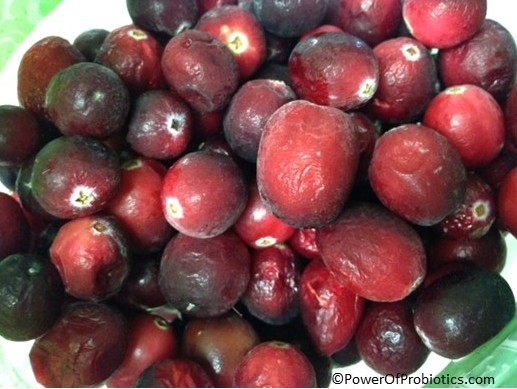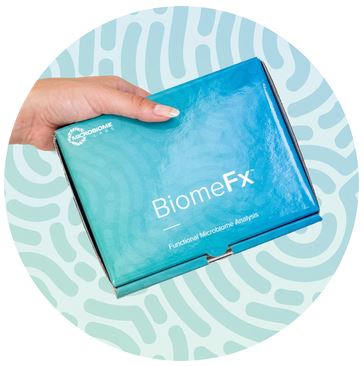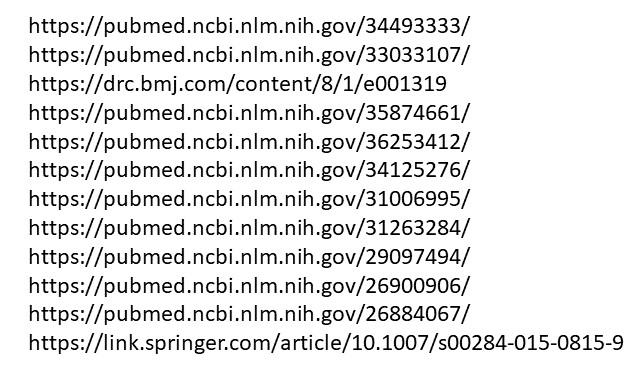Akkermansia muciniphila Benefits - The Probiotic You Need

Akkermansia muciniphila benefits are unique for its status as a new player in the probiotics world. It certainly is not new to providing health benefits to humans and animals, however.
You probably have heard of Bifidobacterium and Lactobacillus (and its newer reclassifications), and I have written many articles highlighting how those genera of probiotic bacteria perform critical actions in the body either as residents or transients. There is a "next-generation" of probiotics, those that until recently have been difficult to characterize and package as probiotics because they are residents used to strict conditions. One of those next-generation probiotics is Akkermansia muciniphila, also known as A. muciniphila or simply Akkermansia. There are several known strains used in research.
Akkermansia muciniphila is a Gram-negative, anaerobic (with limited oxygen tolerance), oval-shaped, non-motile bacterium in the Verrucomicrobia phylum that was first isolated from human feces. It is also found in human milk, which makes breastfeeding infants extremely important. Although many Gram-negative bacteria are pathogens, Akkermansia muciniphila benefits make it predominantly one of "the good guys." It is generally thought to average 3% of the bacterial microbiome in healthy individuals, but may be constitute as much as 9% of bacteria in rectal mucosal biopsies and 5% of distal ileum samples.
The bacterium derives its name of muciniphila from the fact that it is a mucus-loving microbe that lives in the mucus layer of humans and animals. In fact, it feasts on the mucus layer and, in turn, produces the short-chain fatty acids acetate and propionate. The intestines then produce new mucus in a healthy relationship of mucus turnover.
The proximity of Akkermansia muciniphila to the intestinal wall cells makes it ideal for strengthening the barrier of the gut wall to prevent leaky gut. In vitro findings show that the bacterium adheres to the intestinal cells and strengthens the integrity of the layer of intestinal cells, but in practice, it appears to stay in the mucosal layer away from intestinal cells.
What Do Studies on Akkermansia muciniphila Benefits Show?
There are many aspects to Akkermansia muciniphila benefits. Studies show that A. muciniphila levels are lower in the guts of humans and mice with autoimmune and metabolic diseases. For instance, studies show that lower levels are found in patients with ulcerative colitis and children with IgE-mediated chronic, inflammatory atopic disease, and lower levels of A. muciniphila are associated with higher body weight. Research shows that A. muciniphila slows down the development and progression of inflammatory bowel disease (IBD) , diabetes, and obesity in mice. It also improves the response to immune checkpoint inhibitor PD-1 antibody therapy in cancer, and improves bone healing in initial studies in mice via reduction of intestinal permeability and alleviation of inflammation.
Some of those studies are highlighted below.
Akkermansia muciniphila Benefits IBD
In mice, this probiotic or one of its outer membrane proteins was shown to reduce induced-colitis inflammatory molecules not only in the colon but also in the spleen and mesenteric lymph nodes. An enzyme secreted by A. muciniphila also reduced induced-colitis in mice.
Akkermansia muciniphila benefits intestinal health in other ways, also. Studies in mice showed that it proliferated stem cells in the small intestine and colon of healthy mice or mice with damaged colons. In those same mice it also helped a type of immune cell and mucus-producing cells differentiate from stem cells into their respective cell types.
Because Akkermansia degrades mucus, when severe intestinal dysbiosis occurs, such as when pathogens like Salmonella are causing havoc, one study in mice showed that increasing the A. muciniphila level has the potential to lead to increased intestinal inflammation. However, in mice bred to develop spontaneous colitis, Akkermansia did not increase inflammation. Nor did it cause adverse events when it reached an extremely high level of 60% in a human following broad-spectrum antibiotic treatment.
Akkermansia muciniphila Benefits Obesity-Metabolic Syndrome
Akkermansia muciniphila benefits Obesity-Metabolic Syndrome in many ways. In mice fed a high-fat or high-sugar diet, or in mice genetically bred to be obese, a lower level of Akkermansia was correlated with increased fat mass, body weight, liver and fat tissue inflammation, blood glucose, insulin, and triglyceride levels.
In a model of obesity in mice induced by a high fat diet, treatment with Akkermansia resulted in reduced body weight gain, the amount of white fat, and energy efficiency while improving liver function. In the same kind of obesity model, heat-killed probiotic, or one of its membrane constituents, reduced or prevented fatty liver and the generation of fatty tissue.
As previously mentioned, the abundance of A. muciniphila correlates with lower body weight in humans. Obese and overweight children had reduced levels compared to lean children.
In a study of adult twins, the abundance of A. muciniphila correlated with lower fasting blood glucose levels, lower insulin levels, and lower body mass index. Interestingly, as BMI, fasting blood glucose, and triglycerides increased over the time period of the two evaluations of those adult twins while hsCRP (high-sensitivity CRP, a marker of inflammation) did not, levels of Akkermansia decreased. This suggests that low-level inflammation of the gut occurs with increasing markers of obesity and Type 2 diabetes markers, and that sub-clinical changes in the gut, including the reduction of A. muciniphila, precede the diagnosis of those conditions.
Although most of the studies to date have been in mice, there have been a few more clinical studies in humans showing Akkermansia muciniphila benefits. In a randomized, double-blind, placebo-controlled pilot study, 32 overweight or obese insulin-resistant adults aged 18-70 years old were administered placebo or 10 billion live or heat-killed Akkermansia probiotics daily for 3 months. The treatment was determined to be both safe and well-tolerated. Results showed improved insulin sensitivity, reduce total cholesterol, reduced fat mass, and reduced blood markers of leaky gut, liver dysfunction, and inflammation without significant changes to the overall gut microbiome. Most parameters that were significantly different from placebo or baseline were obtained with the pasteurized probiotic.
In another trial, a randomized, parallel-group, placebo-controlled, double-blind study, adults with Type 2 diabetes were provided Akkermansia along with inulin and four other anaerobic microbes for 12 weeks. They experienced a decrease in total glucose levels and improvement in HbA1C.
Interestingly, metformin treatment in humans is shown to increase butyrate producers as well as A. muciniphila such that microbiome-mediated effects of metformin are thought to be one of the mechanisms of its effect.
There are two clinical trials currently in progress to assess Akkermansia muciniphila benefits: one Phase 2 trial with strain WST01 in overweight or obese Type 2 diabetics, and one Phase 2 trial investigating the effects of pasteurized strain AMF-01 in hyperglycemic persons with metabolic syndrome.
Although several studies in rodents have shown that the outer membrane compounds of A. muciniphila or heat-killed bacteria may have greater potential for metabolic, inflammatory, and autoimmune diseases than live bacteria, those compounds are not yet available to the public. It could be that live Akkermansia muciniphila benefits may show to be superior to those obtained with the pasteurized bacteria in longer-term studies, particularly since it is a normal inhabitant of a healthy person.
Akkermansia muciniphila Benefits Cancer Therapy
It is known that intestinal microbiota can impact responses of some cancer patients to some cancer therapies. Immune checkpoint inhibitor (ICI) therapy in patients with non-small cell lung cancer resulted in higher response rates in patients with relative abundance of Akkermansia compared to lower abundance. When feces from responders were transplanted into mice with tumors, the mice had improved response to ICI therapy compared to feces implantation from non-responders. Additionally, when the fecal microbiota transplant mice that received feces from non-responders were supplemented with Akkermansia, those mice responded to the ICI. Thus, Akkermansia muciniphila benefits certain types of cancer therapy.
Test Your Akkermansia Levels

One way to know a snap shot in time of your Akkermansia muciniphila level is to do a stool test. I like Microbiome Lab's Biome Fx Gut Microbiome Test. You can order the test through my account with them with the prefilled referral code at the link. The price includes a one-time consultation with me to review your results.
Where to Find Akkermansia?
You can reap Akkermansia muciniphila benefits with Pendulum's Akkermansia probiotic supplement in my online supplement dispensaries, Wellevate and Fullscript. It contains 100 million AFU’s of strain WB-STR-001 and 435 mg of chicory inulin in a hypromellose vegetarian capsule with magnesium stearate. The same strain of A. muciniphila is found along with other probiotics in Pendulum's Glucose Control product. These supplements are non-GMO-verified, and the shelf life is 2 years from the manufacturing date printed on the bottle. As I explained in a newsletter last year, AFU refers to AFU (active fluorescent units), which is a newer method of measuring microbes that can distinguish between dead, damaged, and alive cells. It counts viable but not culturable (VBNC) cells that may not have been culturable on CFU plates, but that may still have benefits of live organisms. It also detects inactive organisms that may re-activate in the gastrointestinal tract. The end result is AFU, those microbes that may be active.
Of course, if you are going to take a probiotic supplement, be sure to provide the microbes with whole foods to help them thrive. Akkermansia particularly flourishes with polyphenols from cranberries, grapes, and green tea. It also thrives from the metabolic products of other probiotics, such as Bifidobacterium and Lactobacillus species and their influences on our bile production. Nurture those probiotics with varieties of fibers and polyphenols to indirectly nurture Akkermansia to get maximum Akkermansia muciniphila benefits.
Other references:

Return to page on probiotic microbes.
Return to homepage.
I research studies and share my clinical experience to write this free site to help you find solutions to your problems. As part of that, I recommend products and services that I genuinely believe will be of help to you. If you click on a link to a product/service, I may receive a small commission to support my efforts if you buy something. The item does not cost you more.
Thanks for visiting this site! If you've enjoyed reading this page or have found the information to be useful to you, please "like", tweet about it, or share it so others can benefit, too. You can leave comments below via Facebook or Disqus.
Comment with Disqus (including as a guest), Twitter or Google accounts:
If you are one of my many readers without a Facebook account, you can still comment.
Disclaimer: Please note: By law, I cannot provide any personalized recommendations for your specific health concern on this site. The information contained in this site is educational in nature and is not intended as diagnosis, treatment, prescription or cure for any physical or mental disease, nor is it intended as a substitute for regular medical care. Consult with your doctor regarding any health or medical concerns you may have.
Subscribe to my occasional newsletter and receive a free copy of "How to Use Probiotics to Lose Weight and Be Healthier".

To comply with the EU's GDPR data privacy regulation, please subscribe here:
Looking for some quality professional supplements, including probiotics? Check out my online dispensary, as I will be doing reviews of some of these products in the future. Click on the Fullscript picture. (Note: If you were a former Wellevate customer, please switch to Fullscript for a better customer experience. Thanks!)
Some competitors of SBI (Solo Build It) are posting fake negative reviews of SBI. If you are considering creating your own website business, or if you have a brick-and-mortar business but want an online presence, I highly recommend SBI!





Comment with Facebook!
I'd love to hear your opinion about what you just read. Leave me a comment in the box below! Other commenting options follow the Facebook comments.